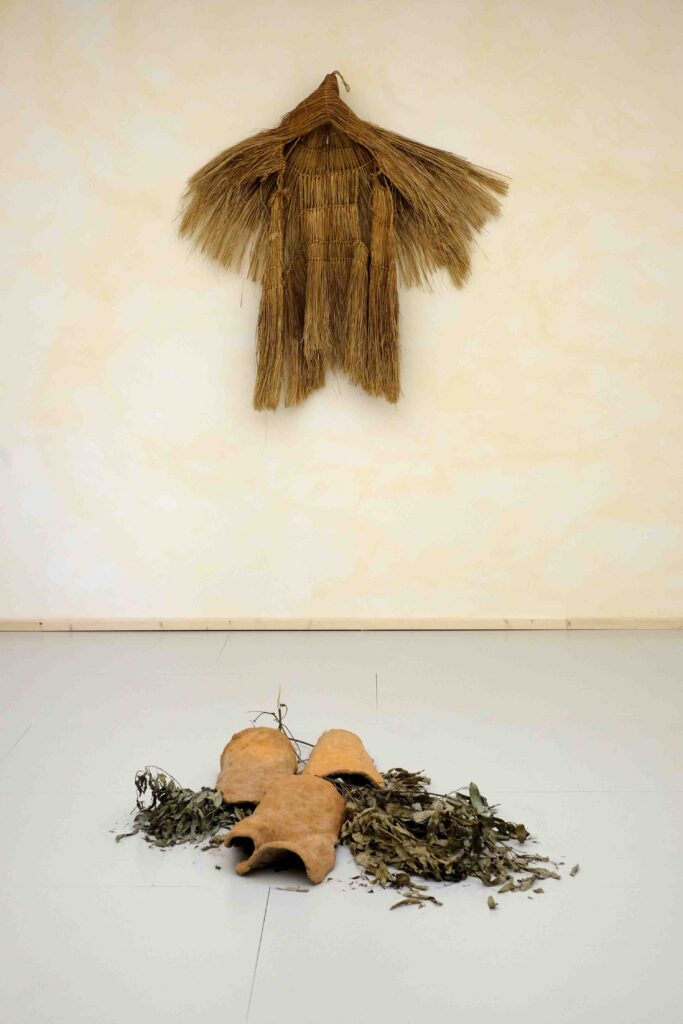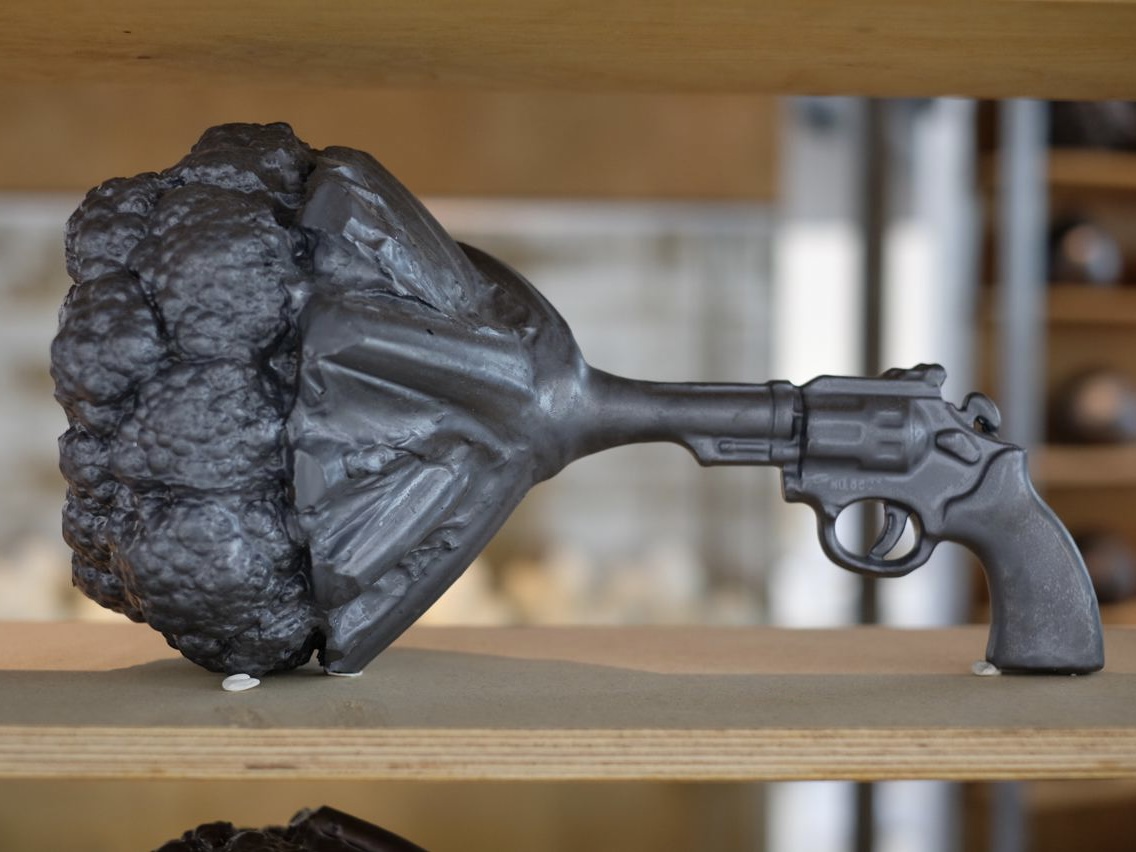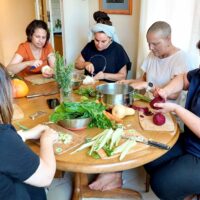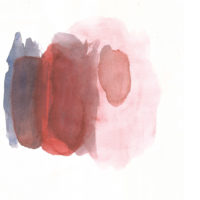It’s been called the most important recurring exhibition in the art world. On September 25th, Documenta Fifteen came to an end. What do we take away from the hundred days? Has the exhibition given art a new face? Has the perspective on the world become more nuanced, wiser, more respectful? Did the Jakarta artists’ collective that served as the artistic director of Documenta succeed in communicating its core values of collectivity, resource building and equitable distribution? In other words, did the hosts succeed in practising and taking to heart the concrete practice of ‹lumbung› – as ruangrupa calls it?
On the one hand, an offer of social conscience from the global South – on the other, an exhibition platform with world fame, tradition and expectations of success from the global North. Is it a sign of desperation that the ideas have run out in the North, in the European West, from which the invitation came? Or is it an attempt to make amends, to finally put centuries of colonial oppression behind us? Good arguments can be found for both. Not religion, not culture, but ‹science›is supposed to guide us today in the global North. Yes, that is how poor we have become. And the shadows of the colonial legacy? It is indeed taken seriously, but do we push through to the bitter end? Can we stand it when insight threatens to become bottomless?
The critique of colonialism has arrived at the universities and in enlightened and culturally creative circles of society; but we cannot yet speak of a broad social sensitivity and the tendency for it to merely be part of good form prevails. This bears no relation to the fact that Western civilisation is based on robbery and exploitation. It is precisely here that the global South picks up: it is not a matter of putting the colonial past «behind us», we have to understand it, remember it, penetrate its structures.
‹lumbung› is the Indonesian word for ‹rice barn›, where the surplus harvest is stored and distributed for the benefit of the community. ‹lumbung› is understood as a practice of just and responsible use of the harvest. It establishes an alternative economy of collectivity. ruangrupa did just that with the harvest that had been handed to them: the directorship of Documenta. Early in the preparatory phase, they invited other collectives to become part of the exhibition organisation. This made it clear from the beginning that there would be no figure of identification to whom admiration, envy and criticism could be addressed. Sharing became the principle and the wealth of the exhibition.
Unfortunately, this promising exhibition concept was unable to flourish. Only a few days after the opening, anti-Semitic imagery was discovered in the work ‹People’s Justice›. The directors were forced to remove the monumental work of the Indonesian collective Taring Padi. Since 1998, it has used puppets, posters and banners to denounce grievances. Its satirical iconography grew as a protest against the military dictatorship of then President Suharto.
Es geht nicht darum, dass wir die koloniale Vergangenheit «hinter uns schaffen», wir müssen sie verstehen, uns erinnern, ihre Strukturen durchdringen.
However, the use of anti-Semitic symbolism was based rather on naivety and ignorance, especially about the perception of these symbols by the German public. Tarig Padi has apologised, stating: «All the figures depicted on the banner refer to symbolism common in Indonesia’s political context, for example for the corrupt administration, military generals and their soldiers, symbolised as pigs, dogs and rats to criticise an exploitative capitalist system and military violence.»1 By the way: Western governments, including the German one, tolerated Suharto and supported him for years.

At the beginning of August, an academic advisory board was appointed by the Documenta shareholders who discovered another case of anti-Semitism two weeks before the exhibition closed, namely in the work ‹Tokyo Reels› by the collective Subversive Films – a compilation of pro-Palestinian propaganda films from the 1960s to the 1980s. Farid Rakun from ruangrupa felt reminded of colonial history in the move to designate the body academic. Academic scholarship as an instrument to delegitimise people. «We understand that politicians need such a body so that they don’t have to come to a conclusion all by themselves.»2 But when «the state does something to extend its power through others, in this case through academics, that is very disturbing».3
Instead of an ‹academic› council, shouldn’t an ‹artistic› council have been convened or an effort made to have a public dialogue between the parties involved? For is ‹colonialism› not ultimately an expression of a failed encounter that should be overcome by a culture of dialogue? As was said, it is not a matter of putting the colonial past «behind us», we have to understand it, remember it, penetrate its structures. And we should distinguish between the language of propaganda and state propaganda, says Farid Rakun. «It is becoming increasingly clear that archives are not neutral. They are contested terrain and it is important to show that.»4
Dokumenta Fifteen has shown that art is a necessary counterweight to increasingly technocratic scholarship. Art not as content but as a practice of living together, sharing, and as a constant exercise of freedom.
Picture The Britto Arts Trust from Bangladesh deals with food politics, displacement and culture. At Documenta 15, it showed the installation rasad. Photo: Johannes Nilo <strong>Translation</strong> Christian von Arnim
Footnotes
- Taz, 21 June 2022, taz.de/Kuenstlerkollektiv-Taring-Padi/!5859643/, retrieved 26 September 2022.
- Monopol of 22 September 2022, monopol-magazin.de/interview-ruengrupa-documenta-fazit-indra-ameng-farid-rakun-ayse-g%C3%BClec-wir-hatten-nie-das-ziel-perfekt-zu-sein, retrieved on 26 September 2022.
- Ibid.
- Ibid.





